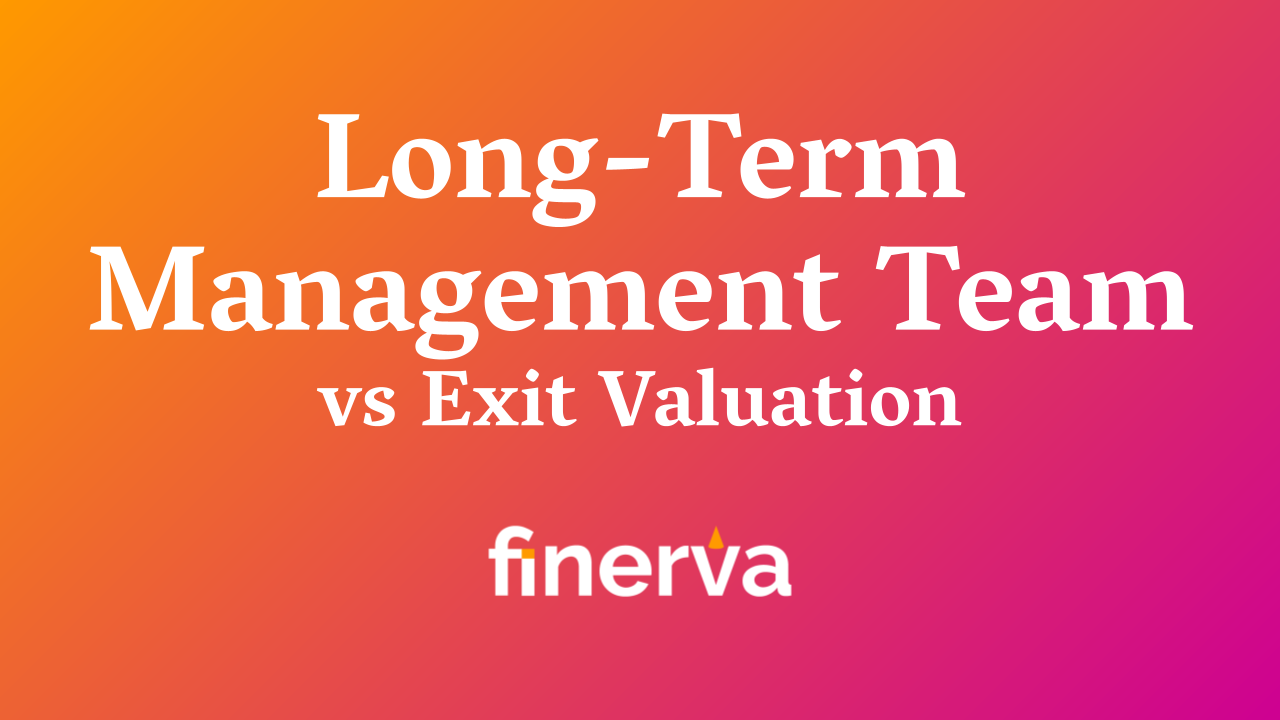How Quality of Long-Term Management Team Affects Your Exit Valuation

A company’s long-term management team typically consists of the managers and leaders at the highest seniority level in your business, whose results and knowledge are crucial to the organisation’s success.
While many companies adopt different structures, those people usually hold CEO, CFO, CTO, CMO, Director or similar titles and are essential for their function planning and business success continuity.
Why long-term management teams are important during an exit
The quality of a long-term management team is very important to an acquirer. Every business owner – whether it’s one of your competitors, a Private Equity group or investors on the public market – needs to ensure continuity of the business and to “back” a team for the long term.
If the business is being acquired by a larger company, then, depending on the nature of the deal, the relevance of different departments and managers in the eyes of the buyers will vary. The acquirer may not be interested in running the business with its original structure and hierarchy, therefore planning for continuity or succession together with employees and managers from each department will ensure that the whole team is motivated to achieve a good exit.
In practical terms, this means ensuring that key people are appropriately incentivised to:
1) ensure the transaction completes; and
2) remain with the company if they are required to for the short or long-term post-completion of the deal. Share options and transaction bonuses are common examples.
How to demonstrate the quality of your long term management team
Regardless of the specific objectives of any potential buyers, showcasing a talented and dedicated management team always reflects well on your company, and can be an enhancer of your exit valuation.
Below are some of the aspects that the buying-side will assess when looking at your leadership team. It is important that you address each of these—with the relevant documentation—ahead of due diligence:
- Length of service
Good management retention usually indicates a strong commitment from your executives and a strong team with a dedication to long-term goals. - Strategy and Goals
Acompany’s vision and mission should be aligned with the goals of the management team. Regularly evaluating your executives based on SMART objectives provides an accurate and reliable track record of their contribution to the business’s success. - Salary and Stock (Share) Options
Providing long-term management adequate salaries compared to other companies in the industry signals the healthy flow of the business to investors, as well as motivating managers to stay at the company. Granting stock (share) options or other long-term incentives to higher-management can be tied to increasing business value over the long run. In some cases, such as with an EMI Scheme, share options can be redeemed under specific conditions such as a business sale or IPO. This can motivate the team to play an active role during the M&A process. - Succession Planning
Succession planning will help ensure that the company can source talent internally should any sudden changes to the management team arise. It can also help to reveal any skills gaps and promote training and knowledge transfer within the company in a more efficient manner. It is a very important practice to establish with the added benefit of boosting your exit valuation.
The quality of your management team is one of the key defining factors of business success. However, talent and commitment can be extremely hard to quantify and prove.
Diligent evaluation, record keeping and planning, as well as remuneration strategy and good HR practices are essential to provide evidence of a good management team to your prospective buyers.
The information available on this page is of a general nature and is not intended to provide specific advice to any individuals or entities. We work hard to ensure this information is accurate at the time of publishing, although there is no guarantee that such information is accurate at the time you read this. We recommend individuals and companies seek professional advice on their circumstances and matters.




